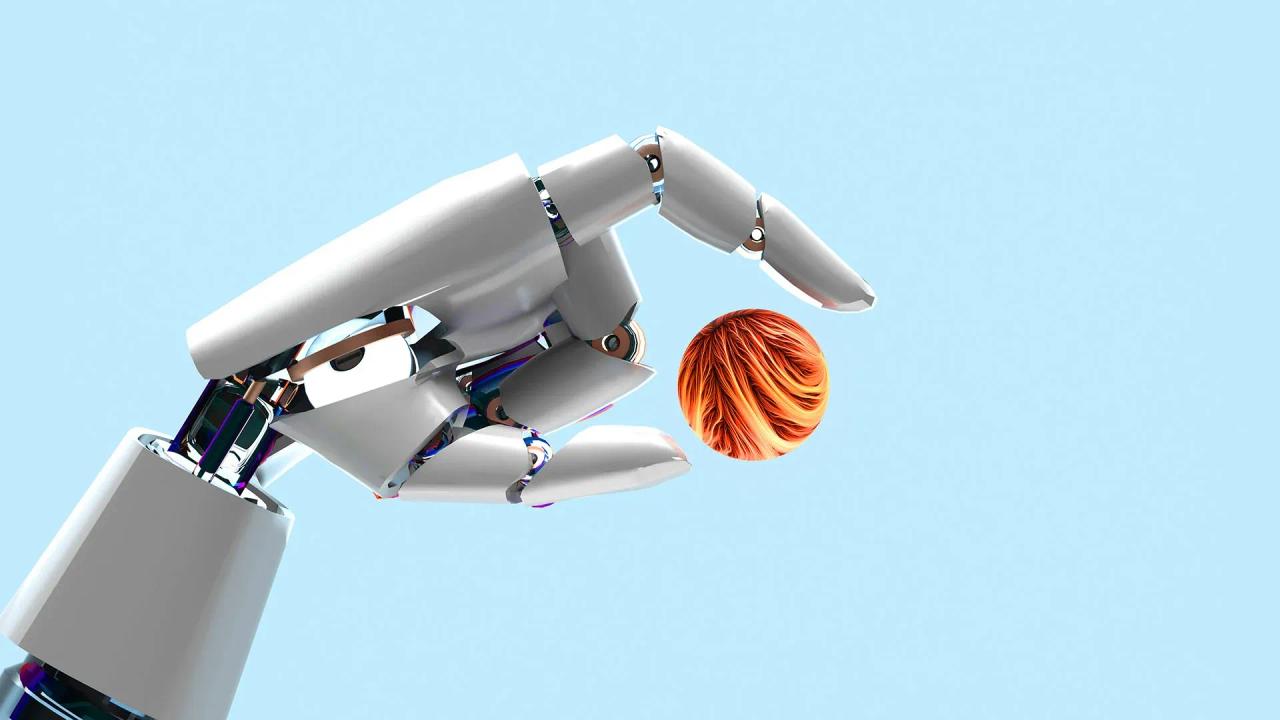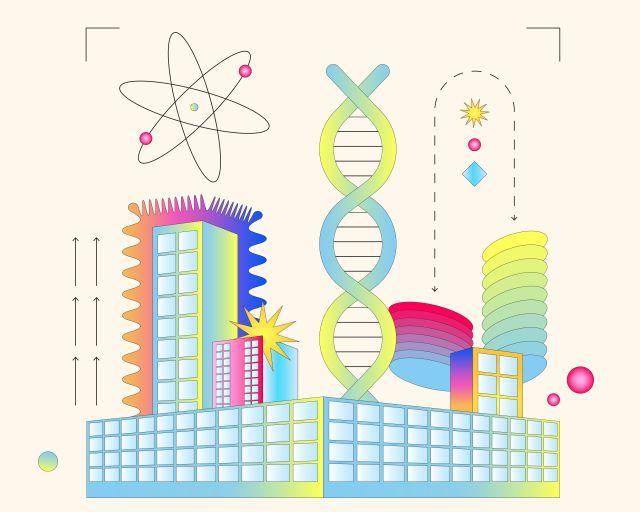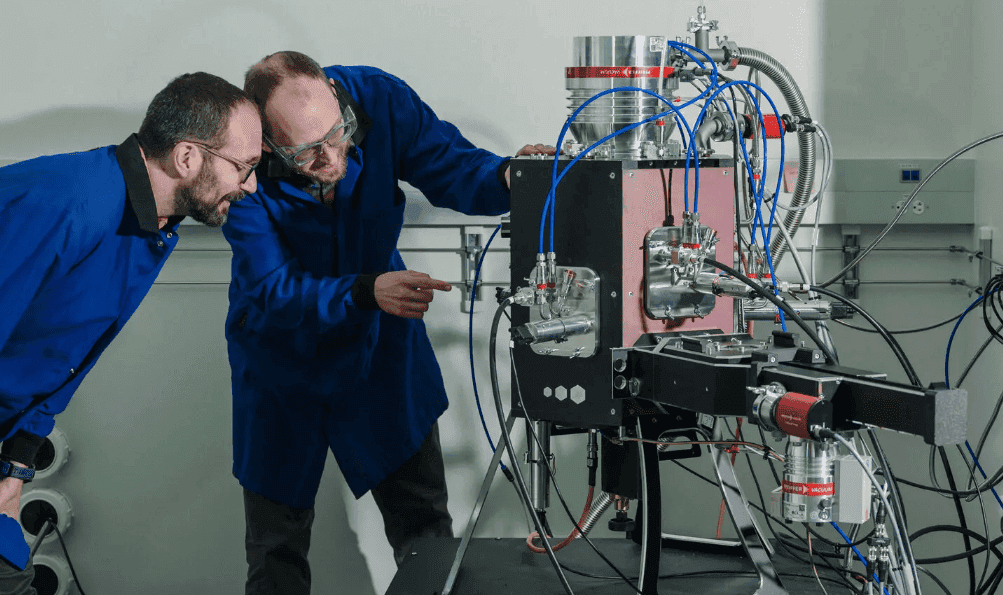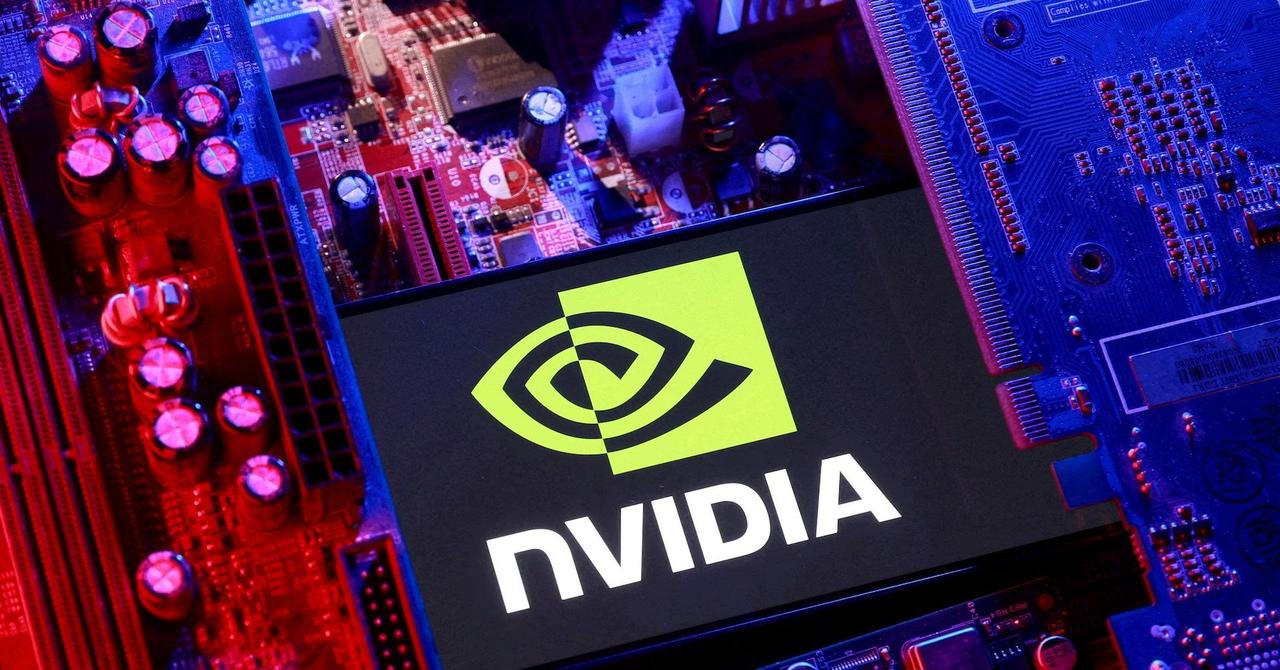Periodic Labs Raises $300M to Create AI-Powered Scientific Research Platform
3 Sources
3 Sources
[1]
Periodic Labs raises $300M to accelerate scientific research with AI - SiliconANGLE
Periodic Labs raises $300M to accelerate scientific research with AI Periodic Labs Inc., an artificial intelligence startup working to speed up scientific research, has raised $300 million in funding. Andreessen Horowitz led the seed investment with participation from Nvidia Corp., Accel and DST. Periodic Labs said in its announcement of the deal on Tuesday that several prominent tech industry figures contributed as well. The group included Jeff Bezos, Eric Schmidt, Google LLC chief scientist Jeff Dean and startup investor Elad Gil. Bloomberg reported last month that the investment was expected to give Periodic Labs a pre-money valuation of $1 billion. The paper's sources added that OpenAI had considered participating in the raise. Periodic Labs is developing AI models that can automate some of the work involved in scientific research projects. According to the company, its algorithms will operate autonomous powder synthesis labs. Those are facilities where materials are turned into powder, heated and mixed to develop new compounds. The labs will use robots to carry out certain research tasks. In some cases, a single materials science experiment can produce several gigabytes of data. Periodic Labs plans to use data from projects carried out in its labs to enhance its AI models. The company hopes that the data will enable its algorithms to perform research more effectively than algorithms trained on the public web. Periodic Labs' first goal is to develop superconductors that can operate at higher temperatures than current materials in the category. Such superconductors could facilitate the development of more efficient chips and power grid infrastructure. When electricity travels across a metal wire, some of the electrons turn into heat. That heat is the reason data centers require cooling equipment. Superconductors can conduct electricity without producing any heat, which means they could theoretically be used to build more efficient servers. In practice, current superconductors don't lend themselves to making data center hardware. The reason is that they only work in sub-freezing temperatures. That's the challenge Periodic Labs hopes to tackle with its semiconductor research push. The company is led by co-founder Ekin Dogus Cubuk and Liam Fedus. Cubuk previously headed Google DeepMind's materials and chemistry team, where he co-created a material discovery model called GNoME. Fedus is OpenAI's former vice president of research. The Periodic Labs team also includes more than two dozen other researchers from major tech firms such as Meta Platforms Inc., Databricks Inc. and Samsung Electronics Co. The company will use its new funding to onboard additional technical professionals. The recruiting drive is set to place particular emphasis on hiring AI researchers, experimentalists and simulation experts.
[2]
This Robotics Startup Just Emerged From Stealth With $300 Million to Create an 'AI Scientist'
A new AI startup created by OpenAI and Google DeepMind alumni has emerged from stealth with $300 million in funding from some of the biggest names in tech. The company, called Periodic Labs, says it is fully dedicated to accelerating scientific discovery with AI. According to a New York Times story on Tuesday, the company was cofounded by Liam Fedus, one of the original creators of ChatGPT, and Ekin Dogus Cubuk, who led some of Google DeepMind's materials and chemistry research teams. Cubuk's team discovered 2.2 million new inorganic crystals, according to TechCrunch. The founders met while they were both working at Google, and connected over a shared desire to use large language models (LLMs) to advance the study of physics and chemistry. Unlike their former employers, both of which have in recent weeks released products that use AI to generate short-form videos, the founders say that Periodic Labs will focus entirely on using AI to test physics simulations. To do this, Periodic will open up a laboratory in Menlo Park that uses robots, powered by large language models, to run scientific experiments. According to Periodic's website, their "goal is to create an AI scientist." Robots will handle the same kind of physical experiments conducted by human scientists, but at a scale that's humanly impossible. In an example given by the Times, an AI scientist "might run thousands of experiments in which it combines various powders and other materials in an effort to create a new kind of superconductor, which could be used to build all sorts of new electrical equipment." Unlike humans, robots don't need to eat, sleep, or take breaks from work, so they can run experiments for much longer. Eventually, according to the Times, the robots could learn which factors lead to success when trying to prove a hypothesis, and use that knowledge to improve their work. The founders think this process could result in breakthroughs for multiple industries, including semiconductors. That potential was enough for Fedus and Cubuk to raise a $300 million seed fund, led by a16z along with NVIDIA, Jeff Bezos, former Google CEO Eric Schmidt, and FIRST Robotics founder Jeff Dean. Over 20 top Silicon Valley researchers have left their jobs to join Periodic. In a video interview with a16z released alongside news of the fundraise, Fedus said that Periodic's ideal customers are engineers and researchers in advanced industries like space, defence, and semiconductors. These engineers and researchers "don't really have particularly good tools," said Fedus, "and that is our opportunity. These are massive R&D budgets."
[3]
A 20-Person Startup Receives $300M Seed Round to Build an A.I. Scientist
With talent from OpenAI, Google and Meta, Periodic Labs is betting A.I. can fast-track breakthroughs in physics, space and energy. It is well funded, backed by Jeff Bezos and Eric Schmidt, and staffed with talent from OpenAI, Google and Meta. But unlike many of its Silicon Valley peers, the new A.I. startup Periodic Labs has no plans to build consumer products or pursue artificial general intelligence (AGI). Sign Up For Our Daily Newsletter Sign Up Thank you for signing up! By clicking submit, you agree to our <a href="http://observermedia.com/terms">terms of service</a> and acknowledge we may use your information to send you emails, product samples, and promotions on this website and other properties. You can opt out anytime. See all of our newsletters "Our goal is to create an A.I. scientist," said Liam Fedus, one of the startup's co-founders, in a post announcing its launch yesterday (Sep. 30). "Until now, scientific A.I. advances have come from models trained on the internet. But despite its vastness, it's still finite." To accelerate discovery, Periodic Labs plans to merge A.I. with traditional research methods, including running experiments in real labs. That mission has already secured $300 million in seed funding. The round was led by Andreessen Horowitz and included Nvidia, Felicis, Accel, Elad Gil, Jeff Dean, Bezos and Schmidt. The San Francisco-based startup is also packed with renowned researchers. Fedus, who co-created ChatGPT and served as vice president of research at OpenAI, launched Periodic Labs with Ekin Dogus Cubuk, a longtime Google DeepMind scientist who formerly led its materials science and chemistry team. The 20-person founding team is a roster of veterans from major tech firms, with experience on projects like OpenAI's Operator agent and Microsoft's MatterGen LLM. In a playful nod to its name, each staffer at Periodic Labs picks an element from the periodic table to adorn a custom desk plate. The company aims to build A.I. systems capable of forming hypotheses and running simulations in autonomous labs, said Peter Deng, a former OpenAI executive and now a general partner at Felicis, in a recent blog post. Deng said he was convinced to invest after Fedus told him, "in order to do science, you have to do real science." In other words, A.I. can only learn so much from text -- it needs real-world experiments to advance. For now, Periodic Labs will focus on the physical sciences, a field rich with data and verifiable results that can support rapid A.I. progress. If successful in automating materials design, the company says its work could accelerate breakthroughs in space travel, nuclear fusion and even Moore's Law. The startup has already begun partnering with semiconductor makers to improve chip heat dissipation and is training agents to streamline research and engineering workflows. Its customer base also includes companies in space and defense. Periodic Labs is not alone in its mission. Tech giants like OpenAI and Google are pursuing similar goals. DeepMind's work on AlphaFold, an A.I. system that transformed protein structure prediction, even earned two of its researchers a Nobel Prize last year. Smaller rivals include FutureHouse, a San Francisco nonprofit also working to create an autonomous A.I. scientist.
Share
Share
Copy Link
Periodic Labs, an AI startup founded by ex-OpenAI and Google DeepMind researchers, has secured $300 million in funding to develop an 'AI scientist' capable of automating and accelerating scientific research, particularly in materials science and chemistry.
Periodic Labs Secures $300M to Revolutionize Scientific Research with AI
Periodic Labs, a cutting-edge artificial intelligence startup, has emerged from stealth mode with a groundbreaking mission to accelerate scientific discovery. The company has successfully raised $300 million in seed funding, attracting investments from tech industry giants and prominent figures
1
2
3
.
Source: SiliconANGLE
Founders and Team
Periodic Labs was co-founded by Liam Fedus, one of the original creators of ChatGPT and former vice president of research at OpenAI, and Ekin Dogus Cubuk, who previously led Google DeepMind's materials and chemistry research teams
2
3
. The startup boasts a team of over 20 top-tier researchers and engineers from major tech companies, including OpenAI, Google, Meta, Databricks, and Samsung1
3
.Innovative Approach to Scientific Research
The company's primary goal is to create an "AI scientist" capable of automating and accelerating scientific research processes
2
3
. Periodic Labs plans to achieve this by:- Developing AI models that can operate autonomous powder synthesis labs
- Utilizing robots to carry out research tasks
- Running thousands of experiments to create new materials, such as superconductors
1
2
Unlike traditional AI models trained solely on internet data, Periodic Labs aims to enhance its algorithms by using data generated from real-world experiments conducted in its labs
1
3
.
Source: Inc.
Focus Areas and Potential Impact
Periodic Labs is initially focusing on the physical sciences, particularly materials science and chemistry. Some of the key areas of research include:
- Developing high-temperature superconductors for more efficient chips and power grid infrastructure
- Improving chip heat dissipation in partnership with semiconductor manufacturers
- Accelerating breakthroughs in space travel, nuclear fusion, and Moore's Law
1
2
3
The company's autonomous labs, powered by large language models, have the potential to run experiments at a scale impossible for human scientists, operating continuously without the need for breaks
2
.
Source: Observer
Related Stories
Funding and Investors
The $300 million seed funding round was led by Andreessen Horowitz, with participation from several high-profile investors:
- Nvidia
- Accel
- DST
- Jeff Bezos
- Eric Schmidt
- Jeff Dean (Google's chief scientist)
- Elad Gil
1
2
3
This substantial investment is reported to value Periodic Labs at $1 billion pre-money
1
.Future Plans and Market Potential
Periodic Labs plans to use the funding to expand its team, with a focus on hiring AI researchers, experimentalists, and simulation experts
1
. The company is targeting customers in advanced industries such as space, defense, and semiconductors, where there are significant R&D budgets and a need for improved research tools2
.As Periodic Labs embarks on its ambitious journey to revolutionize scientific research through AI, the tech industry and scientific community will be watching closely to see if this fusion of artificial intelligence and real-world experimentation can indeed accelerate the pace of discovery and innovation.
References
Summarized by
Navi
[2]
Related Stories
Recent Highlights
1
Google Gemini 3.1 Pro doubles reasoning score, beats rivals in key AI benchmarks
Technology

2
Meta strikes up to $100 billion AI chips deal with AMD, could acquire 10% stake in chipmaker
Technology

3
Pentagon threatens Anthropic with supply chain risk label over AI safeguards for military use
Policy and Regulation








